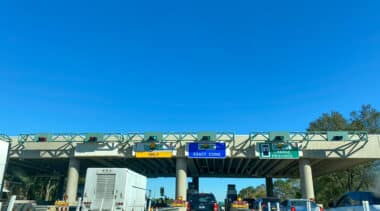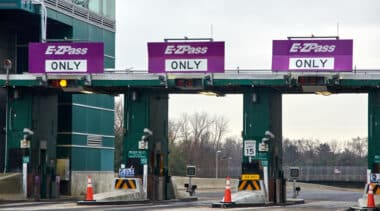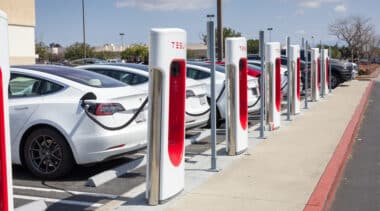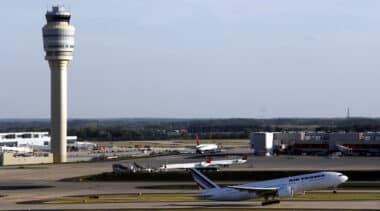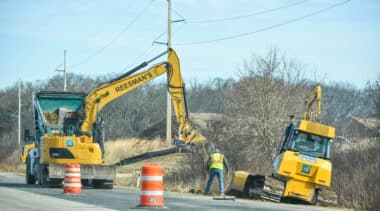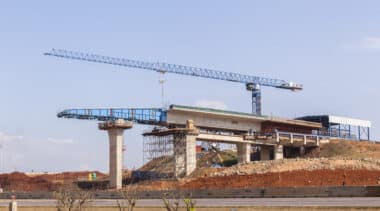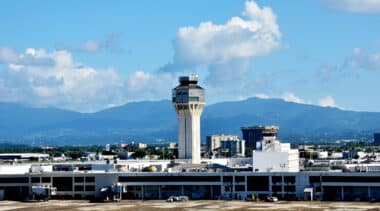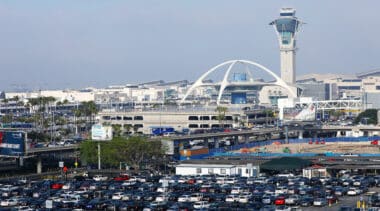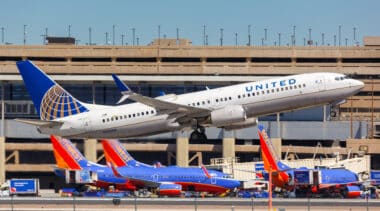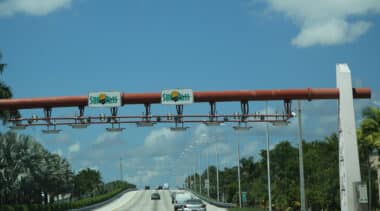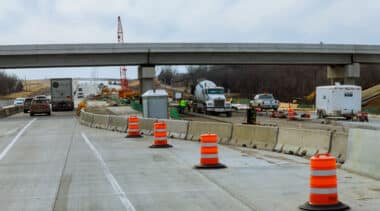Robert Poole is director of transportation policy and Searle Freedom Trust Transportation Fellow at Reason Foundation.
Poole, an MIT-trained engineer, has advised multiple presidential administrations and transportation departments on infrastructure issues.
Surface Transportation
In the field of surface transportation, Poole has advised the Federal Highway Administration, the Federal Transit Administration, the White House Office of Policy Development, National Economic Council, Government Accountability Office, and state Departments of Transportation in numerous states.
Poole's 1988 policy paper proposing privately financed toll lanes to relieve congestion directly inspired California's landmark private tollway law (AB 680), which authorized four pilot toll projects including the successful 91 Express Lanes in Orange County. More than 20 other states and the federal government have since enacted similar public-private partnership legislation. In 1993, Poole oversaw a study that coined the term HOT (high-occupancy toll) Lanes, a term which has become widely accepted since.
California Gov. Pete Wilson appointed Poole to the California's Commission on Transportation Investment and he also served on the Caltrans Privatization Advisory Steering Committee, where he helped oversee the implementation of AB 680.
From 2003 to 2005, he was a member of the Transportation Research Board's special committee on the long-term viability of the fuel tax for highway finance. In 2008 he served as a member of the Texas Study Committee on Private Participation in Toll Roads, appointed by Gov. Rick Perry. In 2009, he was a member of an Expert Review Panel for Washington State DOT, advising on a $1.5 billion toll mega-project. In 2010, he was a member of the transportation transition team for Florida's Governor-elect Rick Scott. He is a member of two TRB standing committees: Congestion Pricing and Managed Lanes.
Aviation
Poole is a member of the Government Accountability Office's National Aviation Studies Advisory Panel and he has testified before the House and Senate's aviation subcommittees on numerous occasions. Following the terrorist attacks of Sept. 11, 2001, Poole consulted the White House Domestic Policy Council and the leadership of the House Transportation & Infrastructure Committee.
He has also advised the Federal Aviation Administration, Office of the Secretary of Transportation, White House Office of Policy Development, National Performance Review, National Economic Council, and the National Civil Aviation Review Commission on aviation issues. Poole is a member of the Critical Infrastructure Council of the Los Angeles Economic Development Corporation and of the Air Traffic Control Association.
Poole was among the first to propose the commercialization of the U.S. air traffic control system, and his work in this field has helped shape proposals for a U.S. air traffic control corporation. A version of his corporation concept was implemented in Canada in 1996 and was more recently endorsed by several former top FAA administrators.
Poole's studies also launched a national debate on airport privatization in the United States. He advised both the FAA and local officials during the 1989-90 controversy over the proposed privatization of Albany (NY) Airport. His policy research on this issue helped inspire Congress' 1996 enactment of the Airport Privatization Pilot Program and the privatization of Indianapolis' airport management under Mayor Steve Goldsmith.
General Background
Robert Poole co-founded the Reason Foundation with Manny Klausner and Tibor Machan in 1978, and served as its president and CEO until the end of 2000.
He was a member of the Bush-Cheney transition team in 2000. Over the years, he has advised multiple presidential administrations on transportation policy.
Poole is credited as the first person to use the term "privatization" to refer to the contracting out of public services and is the author of the first-ever book on privatization, Cutting Back City Hall, published by Universe Books in 1980. He is also editor of the books Instead of Regulation: Alternatives to Federal Regulatory Agencies (Lexington Books, 1981), Defending a Free Society (Lexington Books, 1984), and Unnatural Monopolies (Lexington Books, 1985). He also co-edited the book Free Minds & Free Markets: 25 Years of Reason (Pacific Research Institute, 1993).
Poole has written hundreds of articles, papers, and policy studies on privatization and transportation issues. His popular writings have appeared in national newspapers, including The New York Times, The Wall Street Journal, USA Today, Forbes, and numerous other publications. He has also been a guest on network television programs such as Good Morning America, NBC's Nightly News, ABC's World News Tonight, and the CBS Evening News. Poole writes a monthly column on transportation issues for Public Works Financing.
Poole earned his B.S. and M.S. in mechanical engineering at the Massachusetts Institute of Technology (MIT) and did graduate work in operations research at New York University.
-
Surface Transportation News: Dealing with ‘double taxation’ on tolled Interstates, the supply chain mess, and more
Plus: Trucking study urges EVs to pay by the kilowatt-hour, assessing the future of urban-area parking, and more.
-
Fuel tax rebates for newly tolled Interstates: A quantitative assessment
The purpose of this policy study is to assess the feasibility of providing fuel tax rebates for miles driven on reconstructed Interstates financed by toll revenues.
-
Proposed electric vehicles tax credit prioritizes labor unions over carbon reduction goals
By trying to push buyers to union-assembled cars, Congress risks slowing the shift to electric vehicles and undercutting the carbon reduction goals it is trying to achieve.
-
Aviation Policy News: Airport emissions and delay management tool, air traffic control tower debacle, and more
Plus: A tale of two airport surveys, increased air safety over the North Atlantic, and more.
-
Surface Transportation News: Rhetorical war on freeway expansion, transit’s near-term future, and more
Plus: Misinformation on proposed per-mile charge, trucks as leading candidate for automation, and more.
-
The important economic factors rarely mentioned in infrastructure debates
All large infrastructure projects should be vetted via a rigorous benefit/cost analysis.
-
Aviation Policy News: Responses to airport lease study, airport security since 9/11, and more
Plus: Airport security since the 9/11 attacks, how climate change policies impact air travel, a better way to deal with in-flight turbulence, and more.
-
Surface Transportation News: Problems with electric vehicles, freight rail innovation in jeopardy, and more
Plus: Virginia embraces per-mile charging, the return on investment for passenger rail systems, and more.
-
Infrastructure funds are ready to invest in US airports
This public-private partnership airport lease model has about a 30-year track record worldwide. It’s overdue to start getting adopted in the United States.
-
Federal ban on commercial rest areas hurts drivers, truckers, and the future of electric vehicles
State transportation departments and the private sector are ready, willing, and able to meet the needs of electric vehicles, drivers, truckers and to provide much better services on the Interstates.
-
Aviation Policy News: U.S. airports worth $131 billion, benefits of airline deregulation, and more
Plus: Urban air taxi updates, Europe moving to space-based landing systems, and more.
-
Frequently asked questions about long-term airport leases
Why would taxpayers and passengers support the long-term lease of an airport?
-
Study: Leasing 31 U.S. airports would generate $131 billion to fund other infrastructure and pay debt
This study estimates the market value of 31 large and medium U.S. airports as $131 billion in total, including Los Angeles International ($17.8 billion), San Francisco International ($11.9 billion), and Dallas/Ft. Worth International ($11.9 billion).
-
Giving Unbanked Drivers a Fair, Convenient Way to Pay Tolls at the Lowest Rates
These new programs are win-win solutions for unbanked and underbanked customers, as well as the toll road operators.
-
Surface Transportation News: Analysis of the Bipartisan Infrastructure Bill, How ‘Buy America’ Undermines Transit, and More
The good, the bad, and the ugly in the infrastructure bill.
-
Annual Privatization Report 2021—Aviation
This report examines recent trends and developments in private-sector participation in airports, air traffic control, and airport security.
-
Aviation Policy News: Airport Privatization, Billionaires in Space, and More
Plus: A new era in airline competition, taking a chance on eVTOL startups, inspector general on troubled FAA Logistics Center, and more.


